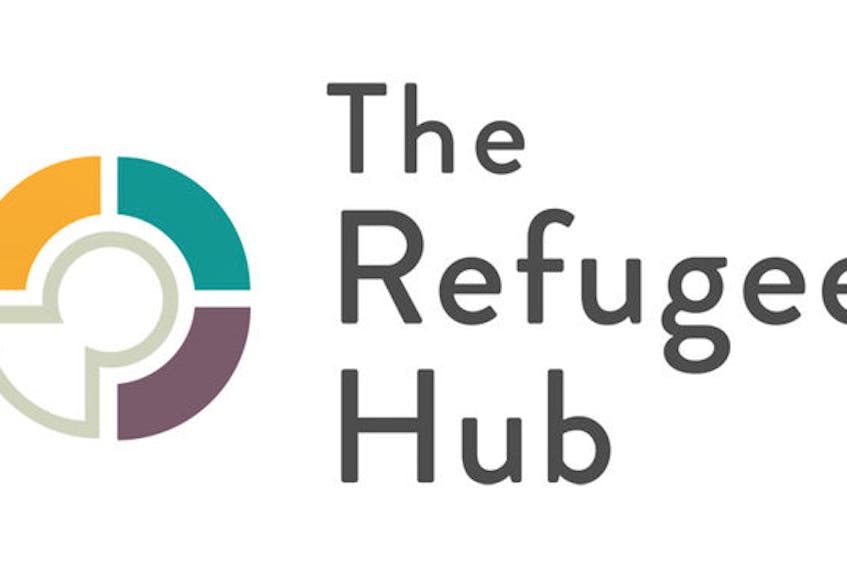ANTIGONISH, N.S. — Promoting the sponsorship of refugees, Chiedza Pasipanodya spent some time in Pictou County and Antigonish May 16 talking about her group – The Refugee Hub (refugeehub.ca) – and available funding for individuals and organizations.
“Last year, we started this fund from a donation from a couple of philanthropists who seeded the fund – Ed Shapiro of the Shapiro Foundation and Frank Giustra of the Giustra Foundation,” the national programs officer with the University of Ottawa-based group, said.
“The fund is for refugee sponsorship. One of the humanitarian things Canada does is we settle refugees and that is kind of what the fund is geared towards. One of those humanitarian streams for refugees is the Blended Visa Office-Referred (BVOR) program which is, kind of, a cost sharing program between the Government of Canada and private citizens.
“It’s Canada’s only sponsor a stranger program; you don’t have to know anyone you want to sponsor,” Pasipanodya said, noting people can view a list of names with details about theirs and their family’s situation.
She noted the funding is for a year.
“The cost is split; for six-months the government pays for it, six-months the sponsorship group pays,” she said. “Sponsorship group can be made up of Canadian citizens or permanent residents.
“The fund was created out of a need. In 2018, the government allocated 1,500 spots for refugee resettlement and, by July, only about 300 of those spots had been filled. It’s a big problem because those spots don’t carry over. Each space is a person and if those spaces are unused, they’re gone. And, as everyone knows, the places for refugee resettlement are quite low and are even lower because the U.S. are not taking as many as they used to.
“This is a challenge for us to say ‘how can we as Canadians help to make us more interested in sponsorship?’ Why are not more people sponsoring; do they not know about the program? Is the cost a barrier? If we remove the barrier of fundraising, because groups often fundraise, would more people sponsor? The fund was set-up to cover the six-moth settlement cost and the start-up cost.”
Pasipanodya said sponsorship is a “big task which requires a big heart.”
“Essentially take in a stranger and support them as they make Canada their home,” she said, noting she is going across the country and talking to Canadians “about their communities and welcoming more people into their communities.
“We’re looking to talk about sponsorship, explain what is sponsorship, why does this matter, how can you get involved. For many people it seems like this big task but, really, it’s a lot of small things that come together. So I try to break it down; there are so many resources and supports for organizations which do this work.”
Pasipanodya said the deadline to apply for the BVOR program funding is Aug. 31 (or until it runs out) and folks interested can do so by visiting The Refugee Hub website and following the appropriate links.









